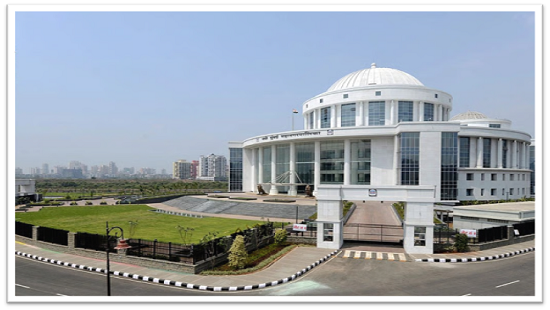
As Navi Mumbai Heads Toward Civic Elections, Agri-Koli Youth Foundation Drives Momentum for Free Healthcare in Private Hospitals
The run-up to Navi Mumbai’s civic elections has brought a renewed focus on public welfare priorities, with the Agri-Koli Youth Foundation (AKYF) emerging as a strong voice demanding accessible and affordable healthcare. Through its ongoing public dialogue series, the organisation has amplified a constitutional point often overlooked in municipal governance debates: free and quality healthcare and education are among the 18 core responsibilities assigned to municipal corporations under the Indian Constitution.
By placing this responsibility at the centre of its outreach, AKYF is steering the conversation toward structural reform rather than short-term electoral promises. Its intervention arrives at a time when urban households face rising out-of-pocket medical expenditures and increasing dependence on private facilities due to capacity constraints in government hospitals.
A Growing Urban Healthcare Burden
Healthcare costs in Navi Mumbai mirror national trends, where private hospitals cater to a significant portion of patient demand. With public facilities unable to shoulder the full load, many families are pushed toward private treatment, often at substantial financial strain. The Foundation argues that this burden can be eased through appropriate municipal policy interventions.
“If NMMC drafts an appropriate framework, private hospitals can be required to offer certain treatments free of charge to taxpayers,” the organisation noted during its public address. This position aligns with municipal practices seen in a few Indian cities, where public-private partnerships enable subsidised or free medical services for local residents.
As medical inflation continues to rise, policy innovation at the municipal level becomes essential. Navi Mumbai, with its strong revenue base and established healthcare network, is situated to explore such reforms.
Policy Levers Available Within Municipal Governance
AKYF’s argument rests not only on constitutional responsibility but also on the procedural mechanisms available to elected representatives. Corporators, the group asserts, have the authority to propose and pass resolutions within the General Body Meeting to institutionalise such a policy.
“A resolution can be moved and passed in the General Body Meeting,” AKYF emphasised. “This would ensure that Navi Mumbai residents receive essential healthcare without financial stress.”
This framing shifts responsibility from abstract government structures to specific, accountable elected individuals. It also presents a clear pathway for implementation, bridging constitutional intent with administrative action.
Citizens Positioned as Key Drivers of Reform
A significant element of AKYF’s campaign is its emphasis on citizen participation. The organisation urged residents to use the election period to foreground this demand when candidates seek votes. This approach reframes healthcare not as an electoral promise but as a civic right.
“When candidates visit you for votes, ask them where they stand on free, quality healthcare. It is your right,” the Foundation appealed.
By mobilising citizens around a rights-based claim, AKYF is encouraging an informed and assertive electorate, capable of shaping policy outcomes rather than responding to them passively. This aligns with a broader trend in urban India where community organisations increasingly influence local governance agendas.
A Timely Intervention Ahead of Critical Elections
The backdrop of the civic polls adds weight to AKYF’s appeal. Navi Mumbai’s political landscape is characterised by rapid urbanisation, high citizen expectations and expanding municipal responsibilities. As the city grows, so do demands for better healthcare, education and public services.
In this environment, proposals that integrate constitutional mandates with actionable policy frameworks gain relevance. AKYF’s intervention attempts to bridge the gap between citizen needs and institutional capability. Its articulation of healthcare as a municipal responsibility challenges traditional boundaries that often confine healthcare discussions to state or national levels.
Strengthening Democratic Accountability Through Public Dialogue
The Foundation’s ongoing public dialogue series serves as an important platform for elevating civic awareness. By grounding its arguments in constitutional duties, AKYF is encouraging residents to engage with the functioning of local government more deeply. Such initiatives contribute to a healthier democratic culture where citizens, civil society and elected officials share responsibility for public outcomes.
The appeal issued by a Navi Mumbaikar and supported by the Agri-Koli Youth Foundation is not simply an electoral message; it is an attempt to redefine the framework through which municipal governance is evaluated. Healthcare, in this narrative, becomes a benchmark for accountability and a measure of civic responsiveness.
Charting a Path Toward Inclusive Urban Healthcare
As the demands on urban healthcare systems intensify, cities like Navi Mumbai stand at a crossroads. The municipal corporation has the financial and administrative capacity to pilot transformative solutions, particularly in areas where citizens face high out-of-pocket expenditure. If NMMC explores structured partnerships with private hospitals, it could set a precedent for urban healthcare models nationwide.
AKYF’s push reflects a broader aspiration: a city where municipal governance aligns more closely with constitutional responsibilities and citizen rights, rather than episodic policy interventions. By foregrounding healthcare as a shared mandate between elected representatives, institutions and residents, the Foundation is contributing to a more inclusive and accountable urban ecosystem.
For citizens heading into the election season, this campaign serves as a reminder that civic engagement is a powerful tool for shaping policy. For municipal leadership, it outlines a clear expectation: stronger, more equitable healthcare delivery that reflects the needs and rights of Navi Mumbai’s growing population.
Public Appeal Contact: 9920282820





